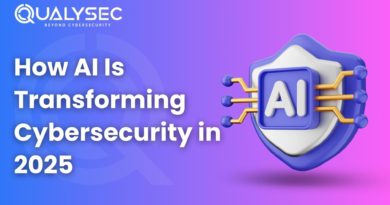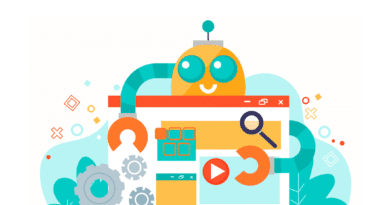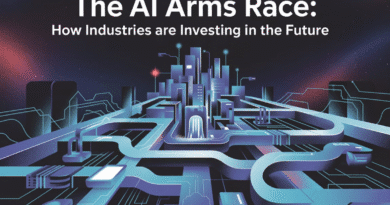AI in Healthcare: Personalized Learning for the Next Generation
Putting you—and your career—front and center with adaptive, AI-powered training.
Table of Contents
Introduction
The days when all medical students attended the same lectures and did the same lab work are over. Now, artificial intelligence (AI) is changing medical education. It delivers the right content at the right time for each learner. Whether you’re mastering patient diagnostics or understanding ABA billing services, AI can tailor each module to fit your strengths. It helps fill gaps and keeps you motivated.
In this article, we’ll explore six key ways AI is transforming healthcare training:
- Adaptive Learning Platforms
- AI-Driven Clinical Simulations
- Instant Feedback & Automated Testing
- Lifelong, Multimodal Education
- Precision Medicine & Patient-Centered Care
- Challenges, Regulation & the Road Ahead
By the end, you’ll understand why AI doesn’t replace mentors—it makes them far more effective.
1. Adaptive Learning Platforms: Your Personal Study Coach
Imagine opening your learning portal and seeing a message like:
“You’ve mastered pharmacology—next up, let’s perfect cardiac rhythm interpretation.”
That’s the power of adaptive learning. Instead of a one-size-fits-all syllabus, these platforms:
- Adjust in real time. Modules expand or contract based on your quiz results, time spent on each topic, and even simulation performance.
- Track every interaction. Dashboards display strengths (e.g., reading EKGs) and pinpoint areas to revisit (e.g., acid–base balance).
- Offer evolving roadmaps. Your study plan automatically updates, ensuring you never waste time on material you’ve already mastered.
Insight for Billing Teams: Administrative professionals, including those in ABA billing services, have a clear advantage. An AI tutor can help you with the latest CPT codes, point out common claim denials, and guide you through prior-authorization steps.
By focusing on what you need, adaptive platforms keep learners engaged and lower the frustration of hitting a plateau.
2. AI-Driven Clinical Simulations: Safe, Scalable, Spectacular
Physical simulation labs come with hefty price tags, complex scheduling, and limited scenarios. AI shatters those boundaries:
- Virtual patients evolve in real time: heart rate fluctuations, lab value changes, even subtle facial cues.
- Branching case pathways mean your decisions truly matter. Give the wrong medication? Watch the patient’s blood pressure drop in response.
- Instant resets let you practice rare emergencies—like anaphylaxis or pediatric seizures—again and again, without waiting for equipment or instructors.
Mannequin Labs vs. AI Simulations
Feature Mannequin Labs AI Simulations Setup Dedicated space & staff | Any computer or tablet Scenario Variety Finite, scripted scenarios | Virtually infinite cases Feedback Instructor-led, delayed | Automated, instant Cost Over Time High maintenance & upgrades | Scalable subscription model
Caption: AI simulations provide endless practice—ideal for mastering critical, low-frequency events.
3. Instant Feedback & Automated Testing: Learn on the Fly
Waiting days for exam results stalls your progress. With AI:
- Auto-grade any format. From multiple-choice quizzes to complex clinical decision maps, get your score immediately.
- Deliver micro-lessons. If you miss a question on acid–base disorders or an ABA billing nuance, a 3-minute refresher pops up right away.
- Access 24/7 AI tutors. Need a quick clarification at midnight? A conversational AI guide points you to the right resource.
Real-world testimonial: “I corrected a billing procedure error in my ABA practice the same day I learned it—thanks to instant AI feedback,” says Tara V., an ABA billing specialist in Chicago.
This feedback loop ensures misunderstandings are corrected immediately, preventing small errors from becoming ingrained habits.
4. Lifelong, Multimodal Education: More Than a Course
Healthcare knowledge doubles every few months. To keep pace, training must be:
- Multimodal.
- Mix articles, videos, audio podcasts, quizzes, and discussion boards in one hub.
- Micro-credentialed. Earn digital badges from 10-minute modules on topics like AI in radiology or new ABA service models.
- Cloud-enabled. Rural clinics, urban hospitals, and remote billing teams access the same quality resources.
- Did you know? The AI-in-healthcare education market is set to exceed $120 billion by 2028, creating richer learning experiences.
These varied methods let you learn anytime and anywhere, while earning credentials that show real expertise.
.
5. Precision Medicine & Patient-Centered Care: Training for Tomorrow
It’s one thing to learn theory; it’s another to apply it in dynamic clinical settings. AI prepares you to:
- Analyze genomic data. Tailor therapies by interpreting patient-specific genetic markers.
- Integrate wearable vitals. Learn how continuous heart-rate or glucose data feed into personalized treatment plans.
- Guide shared decision-making. Use AI-generated risk profiles to discuss options and empower patients.
Quick link: Explore how the American Medical Association integrates AI into precision-medicine training.
As AI-trained clinicians enter practice, they bring a level of data fluency that directly benefits patient outcomes.
6. Why AI in Healthcare Matters and What Sets This Approach Apart
Every advancement in medical training carries potential—and risk. Here’s why AI is crucial:
- Scalability. Traditional methods can’t expand quickly enough to meet growing demand. AI platforms serve thousands of learners at once, anywhere in the world.
- Personalization. No two learners are the same. AI adapts in milliseconds to individual performance, ensuring each person follows an optimal path.
- Integration of Roles.
- AI helps not just clinicians but also administrative staff, like those managing ABA billing services, by integrating real tasks into training modules.
- Continuous Improvement: We use learner feedback to improve content. This way, the system identifies which materials suit different profiles best.
- Real-World Validation:
- We work with top hospitals and billing companies to test new modules. This ensures each lesson meets real workplace needs.
- This mix of advanced technology, wide applicability, and real-world partnerships makes our AI-driven training effective and impactful from the start.
7. Challenges, Regulation & the Road Ahead
AI’s promise is immense, but navigating the journey requires care:
Privacy & Security
- Comply fully with HIPAA and GDPR.
- Maintain end-to-end encryption for all simulation and learner data.
Bias & Fairness
- Curate datasets that reflect diverse populations.
- Perform regular audits to detect and correct biased outcomes.
Accreditation Alignment
- Meet standards set by bodies like LCME and ACGME.
- Keep algorithms transparent so educators can review logic and results.
Ethical Oversight
- Secure IRB approval for pilot programs.
- Conduct impact studies to ensure AI tools truly improve learning.
Looking forward:
- AR/VR enhancements will bring tactile feedback to virtual training.
- Global sharing networks may let a billing specialist in Tokyo co-develop modules with a nurse in Nairobi.
By addressing these areas proactively, organizations ensure AI elevates training without introducing new risks.
Conclusion
AI is not a passing trend; it’s a powerful partner in healthcare education. It helps front-line clinicians tackle rare diagnoses and aids ABA billing teams with complex payer rules. AI adapts to individual needs, gives instant feedback, and simulates real-world scenarios. This method supports all learners, helping them advance with confidence and skill.
Frequently Asked Questions (FAQs)
1. How does AI improve clinical and billing skills?
By looking at real-time performance data—like virtual patient cases or ABA billing claims—AI spots knowledge gaps. It then provides targeted modules, ensuring users master content before moving on.
2. Can AI recommendations be biased? Yes, if they rely on flawed data. Leading platforms reduce this risk by using diverse datasets, conducting regular fairness audits, and being transparent about their algorithms.
3. Will AI ever replace human instructors? No. AI can manage routine grading and basic tutoring. This allows instructors to concentrate on mentorship, complex discussions, and hands-on activities that machines cannot replicate.




